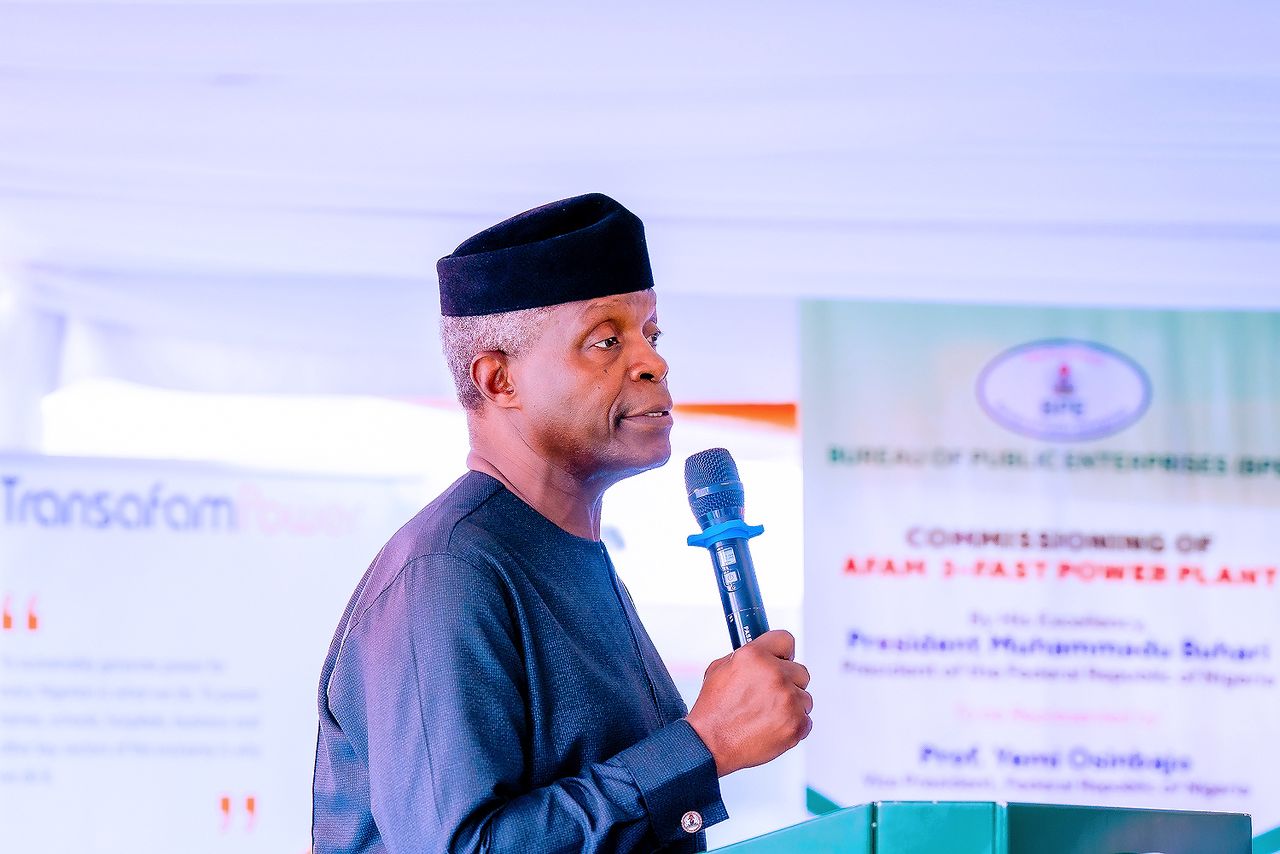With the largest renewable energy potential and critical minerals located in the global South, the global North must collaborate with the South with openness and transparency, rather than merely seeking influence and leadership of the South, which will waste this crucial opportunity for effective global action for climate, peace and security, according to former Vice-President, Prof. Yemi Osinbajo.
He made these remarks during a panel discussion themed: “Resilient Systems: Managing Critical Dependencies” at the inaugural Future Resilience Forum (FRF), which held in London on the 10th of October, 2023.
Other world and thought leaders who participated at the Forum include the Prime Minister of the UK, Rishi Sunak; the President of Senegal, Macky Sall; the President of Iraq, Abdul Latif Rashid; William Hague, Former UK Foreign Secretary; British Petroleum’s Senior Vice President (Europe) and the Head of UK operations, Louise Kingham, Independent Energy Policy Institute Chairman, Narendra Taneja, amongst others.
Prof. Osinbajo made the point that “every day, it is becoming more obvious that what the global south requires is more collaboration, more thinking together, rather than the exertion of influence.”
According to him, a lot of the resources needed to develop along a climate-conducive trajectory are located in the developing world, and with the rise of several nations to world power status, these host nations of resources now have a wider choice than before in choosing their preferred partners.
The inaugural Future Resilience Forum event opened on Monday evening, 9th October, with Prime Minister of the UK, Rishi Sunak, and President of Senegal, Macky Sall, giving keynote addresses on the theme: “Resilience of the Global South and Why it Matters.”
Other discussions at the Forum covered subject matters such as Resilient Systems, Democratic Resilience, Resilient Information Ecosystems, Technology and Accountability, as well as Resilient Food and Health Systems.
FRF, founded by Fiona Hill, is the world’s first security conference focused on promoting global resilience. The Forum aims to foster pragmatic depoliticized and long-term cooperation, and believes that democracies must push the definition of success to go beyond election cycles; helping governments, businesses and society understand the challenges they face from electorates navigating a divisive information age.
Later on in the month, Prof. Osinbajo will lead a panel discussion on “Navigating the Energy Transition” at the 10th Anniversary of the Financial Times Africa Summit coming up on the 17th of October, 2023, in the United Kingdom.

 Join Daily Trust WhatsApp Community For Quick Access To News and Happenings Around You.
Join Daily Trust WhatsApp Community For Quick Access To News and Happenings Around You.


